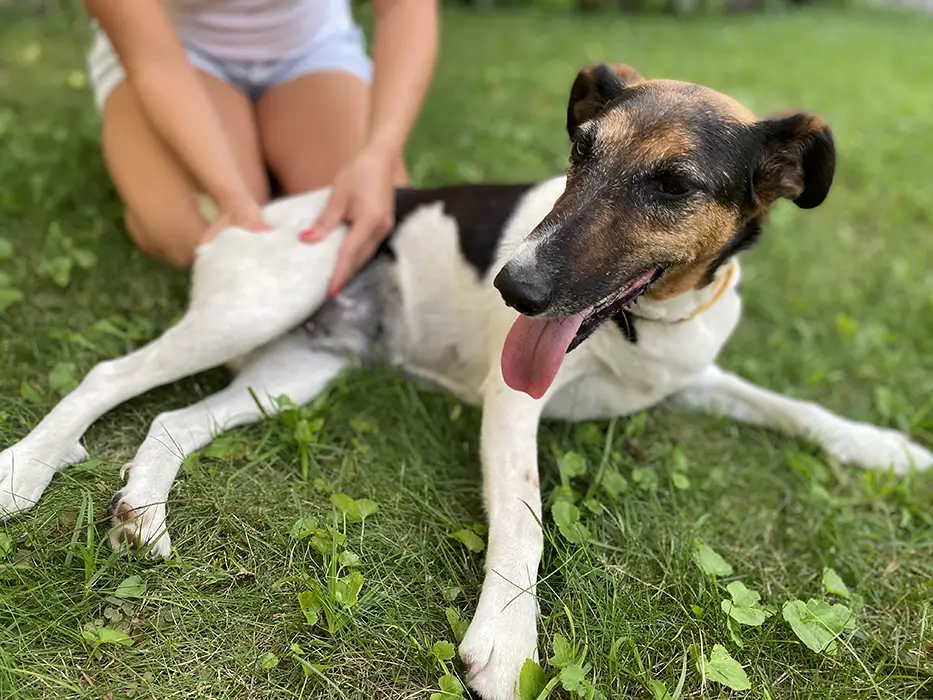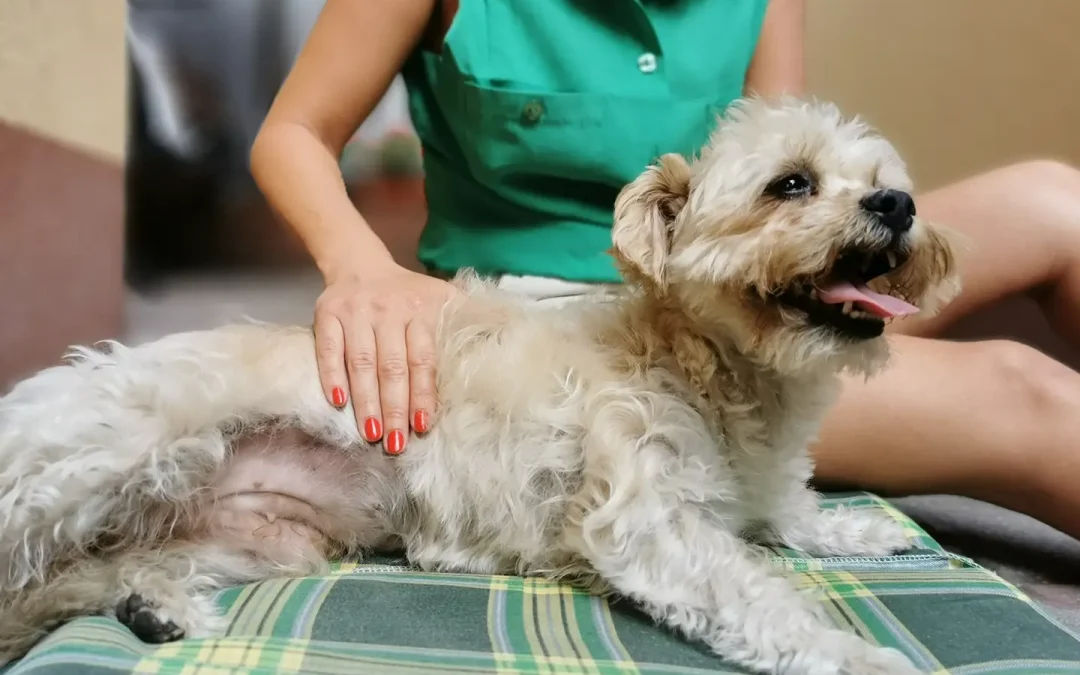When you notice your dog panting at night, it can be concerning. While panting is a natural behavior for dogs to cool down and regulate their body temperature, excessive or unusual nighttime panting may signal an underlying issue. This guide explores common reasons why dogs pant at night, including age-related factors, potential health concerns, and environmental influences. By understanding the causes and recognizing warning signs, you can help your pet feel comfortable and decide when it may be time to consult a veterinarian.
Is it normal for dogs to pant at night?
Panting is a common behavior in dogs, primarily serving as a way for them to cool down since they don’t sweat like humans do. However, if you notice your dog panting more than usual at night, it’s essential to consider a few factors. For some dogs, light panting in a warm room or after a day of exercise is normal. But heavy or excessive panting, particularly when your dog is resting, may indicate a deeper issue. Understanding what’s normal for your dog’s breed, age, and health status can help you differentiate between routine and unusual panting.
For example, brachycephalic breeds like Bulldogs and Pugs are more prone to panting due to their shorter nasal passages, which can make it harder for them to breathe easily, especially when lying down. On the other hand, older dogs or dogs with health issues may pant at night as a symptom of age-related changes or discomfort. Recognizing what’s normal for your dog will help you better assess when panting might be a sign of something more serious.
Looking for a dog massager? Get to know me better!

Reasons why dogs pant at night
Understanding why your dog might be panting at night can help you address their needs more effectively. Below are some of the most common reasons dogs experience nighttime panting:
Age-related issues
When the question arises: Why is my dog breathing so fast? – it is worth considering the age. As dogs get older, they can develop various health conditions that may cause nighttime panting. Senior dogs, for instance, might pant more due to joint pain, arthritis, or even cognitive changes that affect their behavior. Conditions like arthritis can cause discomfort that feels worse at night, leading to panting as a response to pain or unease. Older dogs are also more prone to conditions like heart disease, which can cause labored breathing and panting, particularly during nighttime when they’re lying down.
Health concerns
Panting at night could indicate certain health issues. Dogs who pant excessively and show symptoms like drinking large amounts of water or shaking may have underlying medical conditions, such as Cushing’s disease, diabetes, respiratory problems, or heart issues. Heavy panting, especially if accompanied by other symptoms like coughing or lethargy, should be taken seriously and might warrant a vet visit to rule out any serious health concerns.
Anxiety and stress
Anxiety is another common cause of nighttime panting in dogs. Some dogs feel anxious at night due to separation from their owners, unfamiliar sounds, or even fear of darkness. Dogs that experience anxiety or stress may pant, shake, or pace around the house. If your dog seems restless and unable to settle, it might be helpful to explore possible anxiety triggers and try calming solutions like a consistent bedtime routine or gentle petting. When you are looking for the answer to the question Why does my dog pant in the car? and there is no extra heat, which would basically justify this, then think about whether the dog can associate the car journey with the vet visits, which can cause him anxiety.
Environmental factors
Sometimes, environmental factors like heat or poor ventilation can cause a dog to pant at night. Dogs rely on panting to cool down, so if the room is too warm or they’re lying on a thick, insulating bed, they may start to overheat. Ensuring your dog has a cool, comfortable place to sleep with good air circulation can prevent panting related to temperature. In other words, when you ask yourself, Why is my dog panting heavy at night?, you don’t have to immediately think the worst, it is possible that he is simply hot.
When should you be concerned? Key warning signs
While some nighttime panting can be normal, there are certain signs that may indicate a more serious issue. Knowing when to be concerned is vital to ensuring your dog’s health and well-being. Here are key warning signs to watch for:
- If your dog is breathing heavily every night or seems to be struggling to catch their breath, this could indicate a problem beyond normal behavior. Persistent heavy breathing, especially when it doesn’t stop after a few minutes, may be a sign of distress or an underlying health condition.
- If your dog starts drinking more water than usual or shows a change in appetite, these can be signs of conditions such as diabetes, kidney disease, or Cushing’s disease. Combined with excessive breathlessness, these symptoms should prompt a visit to the vet.
- Rapid breathing accompanied by shaking, pacing, or restlessness may suggest anxiety, pain, or discomfort. If your dog cannot seem to settle down at night, it could be experiencing stress or physical discomfort that needs to be addressed. In such a case, I recommend my dog Swedish massage service in the Saint Augustin area.
- Check your dog’s gums and tongue when breathing is excessive. If the color is pale, blue, or gray, this may indicate a lack of oxygen or blood circulation, which requires immediate veterinary attention.
If you notice these signs, it’s best to consult with your veterinarian to determine the underlying cause and provide your dog with the appropriate care.
Tips for reducing your dog’s nighttime panting
If your dog’s nighttime breathing discomfort is not due to a serious health issue, there are several ways to help them feel more comfortable and reduce their heavy breathing.
- Provide a cool sleeping environment: Ensure that your dog’s sleeping area is well-ventilated and kept at a comfortable temperature. Consider placing a fan near their bed or using a cooling mat designed for pets, especially if they have a thicker coat or are sensitive to warmer temperatures.
- Establish a calming bedtime routine: A consistent and calming routine before bed can help ease anxiety for dogs that may pant due to stress. Try gentle petting, quiet time, or even a short evening walk to help them relax before settling down for the night. Avoid any high-energy activities just before bedtime, as this can sometimes lead to restlessness.
- Hydration and comfortable bedding: Make sure your dog has access to fresh water, particularly if they tend to pant or drink more at night. Providing a comfortable and supportive bed can also relieve any discomfort, especially for senior dogs who may experience joint pain.
From age-related issues to environmental factors and stress, there are many causes of wheezing at night. By monitoring for additional symptoms, creating a comfortable sleeping environment, and consulting with your veterinarian if necessary, you can ensure that your dog remains healthy and comfortable. Remember that your veterinarian is the best resource for understanding your dog’s unique health needs and finding the most effective solutions.
If you choose me as your dog masseur, I will assess your dog’s condition every time, and if I find that your pet needs rest instead, I will communicate that. For dog massage treatments, feel free to contact me in the Saint Augustine area! Give me a call, and let’s schedule the first appointment! (904) 377 6291

